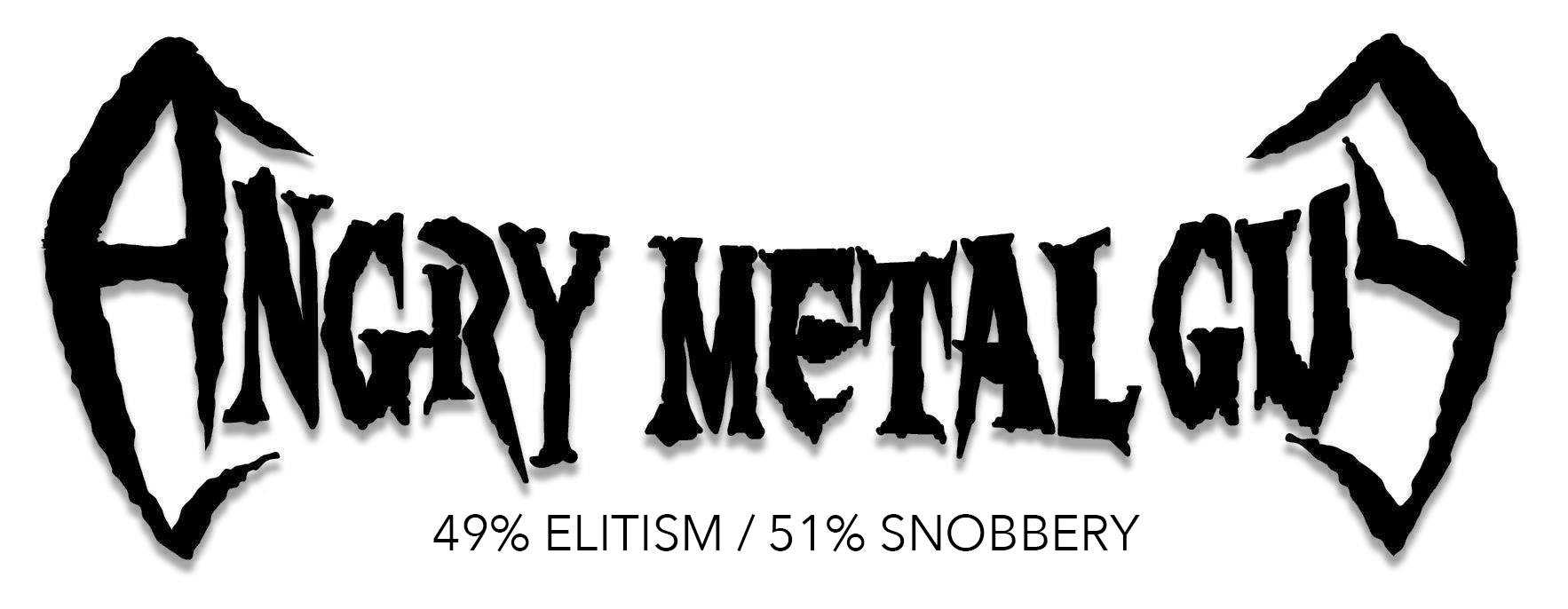 As the school year wraps up and I enter the odd throwback of what those in academia often refer to as summer “break,” you would assume that I’d have a ton more time to sift through the disgusting Filter at AMG HQ. But no. Because the world is a fuck, as are all of the people in it except for me and maybe Dr. A.N. Grier, I’m elbow deep in a moldy, claustrophobic trap named boredom. Not working for two months straight is driving me stir crazy and making it impossible to focus on new music. Don’t take that to mean I’m just sitting around doing nothing around here, though! This hard-working and thick-skinned-ish sponge has been driving the riff-raff hard to capture and polish those shit-stained nuggets of metallic goodness you fucknuts out there expect…
As the school year wraps up and I enter the odd throwback of what those in academia often refer to as summer “break,” you would assume that I’d have a ton more time to sift through the disgusting Filter at AMG HQ. But no. Because the world is a fuck, as are all of the people in it except for me and maybe Dr. A.N. Grier, I’m elbow deep in a moldy, claustrophobic trap named boredom. Not working for two months straight is driving me stir crazy and making it impossible to focus on new music. Don’t take that to mean I’m just sitting around doing nothing around here, though! This hard-working and thick-skinned-ish sponge has been driving the riff-raff hard to capture and polish those shit-stained nuggets of metallic goodness you fucknuts out there expect…
…and you damn well better like them, or it’s the wood chipper for the lot of ya!
Dolphin Whisperer’s Delectable Deviants
Morgue Supplier – Inevitability
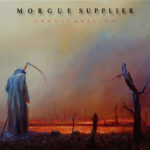
Spiter – Bathe the Babe in Bat’s Blood
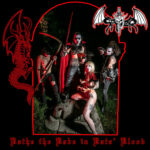
Dear Hollow’s Loathsome Lottery
Aara – Triade II: Hemera
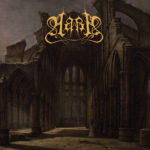
Abrupt Decay – I Was Never Here

Serling – Next Stop, Willoughby
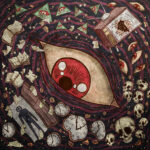 Your next stop: Serling. Embarrassingly on-the-nose Rod Serling-esque intro aside, Next Stop, Willoughby is a fantastic sonic rendition of the iconic 1960’s series The Twilight Zone, each track named after and inspired by different episodes. While unashamedly cacophonous mathcore a la The Tony Danza Tapdance Extravaganza in its desperate fry vocals, shifty rhythms, and bass-heavy Josh Travis-esque guitar tone, Maine duo Serling’s deathcore and beatdown elements elevate this to a level like that of Dysphoria or Ion Dissonance. Emphasized by guest spots courtesy of Bone Cutter, D.B. Cooper, The Sound That Ends Creation, and Oceano, crushing djunz, jagged tempo shifts, and devastating growls slam into the ears. Dissonant pick sweeps and wonky effects grace their debut with a distinctly psychedelic flare, but a menacing patience in tracks like “Living Doll” and “The Silence” take on a darkness unlike any of its ilk in recent memory. Serling’s Next Stop, Willoughby, in all its unabashed excess and youth, is a brutal, unforgiving, and extradimensional journey into a wondrous land whose boundaries are indeed that of imagination.
Your next stop: Serling. Embarrassingly on-the-nose Rod Serling-esque intro aside, Next Stop, Willoughby is a fantastic sonic rendition of the iconic 1960’s series The Twilight Zone, each track named after and inspired by different episodes. While unashamedly cacophonous mathcore a la The Tony Danza Tapdance Extravaganza in its desperate fry vocals, shifty rhythms, and bass-heavy Josh Travis-esque guitar tone, Maine duo Serling’s deathcore and beatdown elements elevate this to a level like that of Dysphoria or Ion Dissonance. Emphasized by guest spots courtesy of Bone Cutter, D.B. Cooper, The Sound That Ends Creation, and Oceano, crushing djunz, jagged tempo shifts, and devastating growls slam into the ears. Dissonant pick sweeps and wonky effects grace their debut with a distinctly psychedelic flare, but a menacing patience in tracks like “Living Doll” and “The Silence” take on a darkness unlike any of its ilk in recent memory. Serling’s Next Stop, Willoughby, in all its unabashed excess and youth, is a brutal, unforgiving, and extradimensional journey into a wondrous land whose boundaries are indeed that of imagination.
Maddog’s Moronic Miss
Inanna – Void of Unending Depths
 Chile’s Inanna is back after a decade, crash-landing in Roswell with a mixture of thrash-laced death metal and otherworldly guitar melodies. While spacey death metal isn’t a new idea, Void of Unending Depths pulls it off through thoughtful composition and infectious enthusiasm. The top-shelf riffs grabbed me with a frantic intensity that only death-thrash could muster; think Morbid Angel’s Altars of Madness or Pestilence’s Consuming Impulse (“Among Subaqueous Spectres,” “Underdimensional”). Inanna supplements these riffs with cosmic solos and leads, haunting bass lines, and proggy nonstandard rhythms, crafting a mesmerizing album. Despite its diverse ideas, Void holds together by using subtle motifs and supple transitions as glue, like the unnerving opening melody of “Evolutionary Inversion.” There’s a lot to unpack here – nearly an hour, to be precise. The biggest source of bloat is the meandering psychedelia on the colossal “Cabo de Hornos” and “Underdimensional.” But even the simpler death metal sections tend to drag, making it difficult to recall specific parts of the record. Still, for fans of bands like Blood Incantation, there’s a lot to love in Inanna’s amalgamation, even if it’s not all immediately visible without a telescope. Come for the riffs, stay for the SPACE!
Chile’s Inanna is back after a decade, crash-landing in Roswell with a mixture of thrash-laced death metal and otherworldly guitar melodies. While spacey death metal isn’t a new idea, Void of Unending Depths pulls it off through thoughtful composition and infectious enthusiasm. The top-shelf riffs grabbed me with a frantic intensity that only death-thrash could muster; think Morbid Angel’s Altars of Madness or Pestilence’s Consuming Impulse (“Among Subaqueous Spectres,” “Underdimensional”). Inanna supplements these riffs with cosmic solos and leads, haunting bass lines, and proggy nonstandard rhythms, crafting a mesmerizing album. Despite its diverse ideas, Void holds together by using subtle motifs and supple transitions as glue, like the unnerving opening melody of “Evolutionary Inversion.” There’s a lot to unpack here – nearly an hour, to be precise. The biggest source of bloat is the meandering psychedelia on the colossal “Cabo de Hornos” and “Underdimensional.” But even the simpler death metal sections tend to drag, making it difficult to recall specific parts of the record. Still, for fans of bands like Blood Incantation, there’s a lot to love in Inanna’s amalgamation, even if it’s not all immediately visible without a telescope. Come for the riffs, stay for the SPACE!
Steel’s Guilty Remnant
Evil – Book of Evil
 Denmark’s simply titled Evil date all the way back to the early 80s, when countrymen Mercyful Fate were just cresting the waves to metal infamy. Alas, success was not in the cards for Evil and they soon disbanded. 2015 saw a reunion with fresh blood for their Shoot the Messenger debut, and now 7 years later we get Book of Evil. Now with newly recruited frontman Martin Steene (Iron Fire, ex-Force of Evil) on board, the Evil ones do their damndest to drag the listener back to the 80s with a very dated but endearing sound loaded with period-appropriate tricks and tropes. There’s many a rousing gallop and heroic refrain as the material wanders between classic metal and a sort of early days Euro-power. Nods to Mercyful Fate and Danish thrash legends Artillery dot the landscape and entertaining cuts like “Divine Conspiracy” and the Gamma Ray-adjacent “The Raven Throne” should bring a smile to those over 40. There’s even an oversized epic in the vainglorious title track. Plenty of rabble-rousing riffs, guitar harmonies and shreddy bells sweeten the deal, and there are more than enough hooks to keep you in tow. Steene earns his keep with a solid performance that frequently echoes Hammerfall’s Joachim Cans, and as retro metal goes, this is good fun with ample balls against the wall. The love of 80s metal rings loud and proud, and that makes Steel happy. Check this book out and get Evil!
Denmark’s simply titled Evil date all the way back to the early 80s, when countrymen Mercyful Fate were just cresting the waves to metal infamy. Alas, success was not in the cards for Evil and they soon disbanded. 2015 saw a reunion with fresh blood for their Shoot the Messenger debut, and now 7 years later we get Book of Evil. Now with newly recruited frontman Martin Steene (Iron Fire, ex-Force of Evil) on board, the Evil ones do their damndest to drag the listener back to the 80s with a very dated but endearing sound loaded with period-appropriate tricks and tropes. There’s many a rousing gallop and heroic refrain as the material wanders between classic metal and a sort of early days Euro-power. Nods to Mercyful Fate and Danish thrash legends Artillery dot the landscape and entertaining cuts like “Divine Conspiracy” and the Gamma Ray-adjacent “The Raven Throne” should bring a smile to those over 40. There’s even an oversized epic in the vainglorious title track. Plenty of rabble-rousing riffs, guitar harmonies and shreddy bells sweeten the deal, and there are more than enough hooks to keep you in tow. Steene earns his keep with a solid performance that frequently echoes Hammerfall’s Joachim Cans, and as retro metal goes, this is good fun with ample balls against the wall. The love of 80s metal rings loud and proud, and that makes Steel happy. Check this book out and get Evil!
